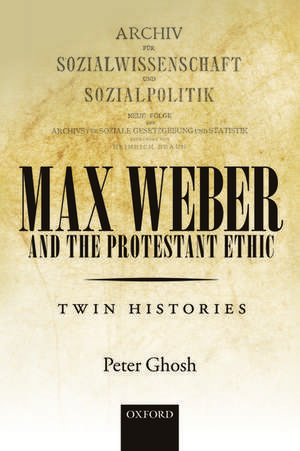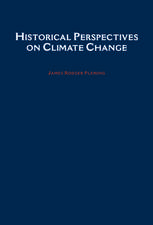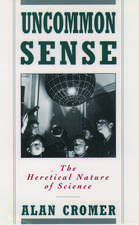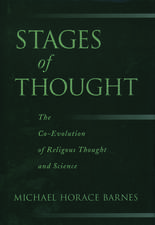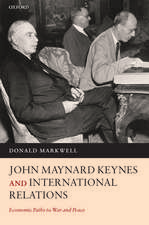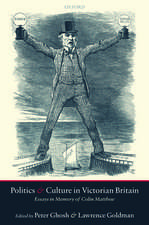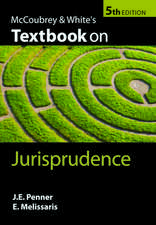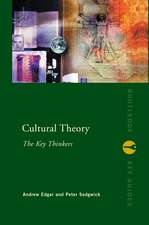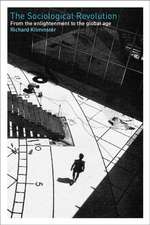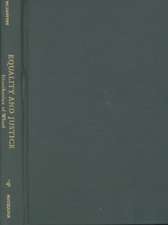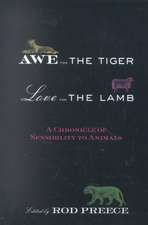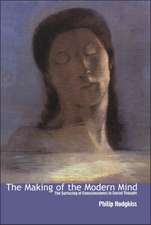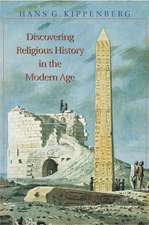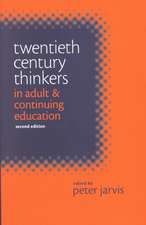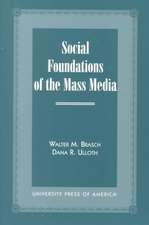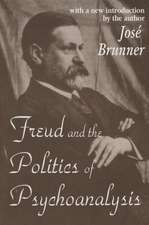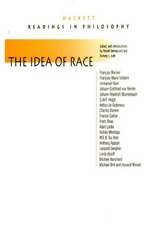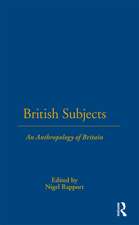Max Weber and 'The Protestant Ethic': Twin Histories
Autor Peter Ghoshen Limba Engleză Paperback – 21 iun 2017
| Toate formatele și edițiile | Preț | Express |
|---|---|---|
| Paperback (1) | 203.66 lei 31-37 zile | |
| OUP OXFORD – 21 iun 2017 | 203.66 lei 31-37 zile | |
| Hardback (1) | 503.39 lei 31-37 zile | |
| Oxford University Press – 3 sep 2014 | 503.39 lei 31-37 zile |
Preț: 203.66 lei
Preț vechi: 244.06 lei
-17% Nou
Puncte Express: 305
Preț estimativ în valută:
38.97€ • 40.69$ • 32.18£
38.97€ • 40.69$ • 32.18£
Carte tipărită la comandă
Livrare economică 04-10 aprilie
Preluare comenzi: 021 569.72.76
Specificații
ISBN-13: 9780198807667
ISBN-10: 019880766X
Pagini: 422
Dimensiuni: 156 x 234 x 24 mm
Greutate: 0.64 kg
Editura: OUP OXFORD
Colecția OUP Oxford
Locul publicării:Oxford, United Kingdom
ISBN-10: 019880766X
Pagini: 422
Dimensiuni: 156 x 234 x 24 mm
Greutate: 0.64 kg
Editura: OUP OXFORD
Colecția OUP Oxford
Locul publicării:Oxford, United Kingdom
Recenzii
in this stylish and extraordinarily detailed new intellectual history ... Ghosh's answer to Weber's uniqueness is beguilingly simple, and gloriously revisionist in overturning most established scholarship
Let it be said at once: this breath-taking book is a really great success -- rewarding and obligatory reading not only for anyone who is interested in the Protestant Ethic or Max Weber, but for everyone who grapples with the theory of the project of (Western) modernity ... It is already clear that in future there can be no avoiding Ghosh's brilliant "twin history", both because of its exact textual labour and also because of its truly Teutonic erudition ... Yet this book is not only extraordinary because of the overwhelming wealth of the material it draws upon. In the exactitude of the textual analysis, which lays bare [Weber's] anticipations and backward glances, allusions and references, intellectual dependency and cross-connections, it is a brilliant achievement in terms of method, while at the same time taking us into the deepest strata of intellectual development.
superb and eminently scholarly
the most comprehensive and illuminating work on Max Weber ever published.
A review like this cannot sum up the wealth of food for thought and for debate Ghosh offers. His book's final words about Weber make an excellent case for studying him: 'Never was there anyone more present on the page, on the screen, and above all in our minds, than he is today'.
[a] stunning work of intellectual archaeology
Ghosh demonstrates an encyclopaedic knowledge of all relevant materials in a way that could only be matched by very few Weber specialists. Ghosh's superb mastery of the relevant texts and sources, his determined avoidance of any psychological speculation and his close attention to the ways in which Weber absorbed contemporary scholarship pays very rich dividends ... everybody who has an intellectual interest in the historical development and the inherent contradictions of modernity should read Peter Ghosh's magnificent book.
Ghosh offers new and illuminating explanations for why historical and typological approaches were commingled in Weber's wartime writings ... Ghosh's book sets itself apart by virtue of its ability to lend coherence to 'Max Weber' as both a historical individual, struggling along the path of intellectual discovery and frustration, and as a set of claims and theories about the world that transcended his personal standpoint.
In this stunning work of intellectual archaeology, Peter Ghosh presents a new reading of Weber's thought through the vanishing-point of the Protestant Ethic and the Spirit of Capitalism (1905) ... Ghosh should now be the first point of call for arranging a new encounter with the man himself.
Peter Ghosh stands alone in the Anglophone world as the most knowledgeable expert on Max Weber's work and person in the context of Anglo and Continental intellectual history. He has succeeded in writing an intellectual biography of Max Weber which has never been attempted before in this depth and breadth. As an intellectual history which comprises the wider cultural context of the early twentieth century, it will be of interest to historians and social scientists beyond the circle of Weberian specialists
Let it be said at once: this breath-taking book is a really great success -- rewarding and obligatory reading not only for anyone who is interested in the Protestant Ethic or Max Weber, but for everyone who grapples with the theory of the project of (Western) modernity ... It is already clear that in future there can be no avoiding Ghosh's brilliant "twin history", both because of its exact textual labour and also because of its truly Teutonic erudition ... Yet this book is not only extraordinary because of the overwhelming wealth of the material it draws upon. In the exactitude of the textual analysis, which lays bare [Weber's] anticipations and backward glances, allusions and references, intellectual dependency and cross-connections, it is a brilliant achievement in terms of method, while at the same time taking us into the deepest strata of intellectual development.
superb and eminently scholarly
the most comprehensive and illuminating work on Max Weber ever published.
A review like this cannot sum up the wealth of food for thought and for debate Ghosh offers. His book's final words about Weber make an excellent case for studying him: 'Never was there anyone more present on the page, on the screen, and above all in our minds, than he is today'.
[a] stunning work of intellectual archaeology
Ghosh demonstrates an encyclopaedic knowledge of all relevant materials in a way that could only be matched by very few Weber specialists. Ghosh's superb mastery of the relevant texts and sources, his determined avoidance of any psychological speculation and his close attention to the ways in which Weber absorbed contemporary scholarship pays very rich dividends ... everybody who has an intellectual interest in the historical development and the inherent contradictions of modernity should read Peter Ghosh's magnificent book.
Ghosh offers new and illuminating explanations for why historical and typological approaches were commingled in Weber's wartime writings ... Ghosh's book sets itself apart by virtue of its ability to lend coherence to 'Max Weber' as both a historical individual, struggling along the path of intellectual discovery and frustration, and as a set of claims and theories about the world that transcended his personal standpoint.
In this stunning work of intellectual archaeology, Peter Ghosh presents a new reading of Weber's thought through the vanishing-point of the Protestant Ethic and the Spirit of Capitalism (1905) ... Ghosh should now be the first point of call for arranging a new encounter with the man himself.
Peter Ghosh stands alone in the Anglophone world as the most knowledgeable expert on Max Weber's work and person in the context of Anglo and Continental intellectual history. He has succeeded in writing an intellectual biography of Max Weber which has never been attempted before in this depth and breadth. As an intellectual history which comprises the wider cultural context of the early twentieth century, it will be of interest to historians and social scientists beyond the circle of Weberian specialists
Notă biografică
Peter Ghosh was a Junior Research Fellow at Nuffield College, Oxford (1980-1), and has been a Fellow in History at St. Anne's College, Oxford since 1981.
